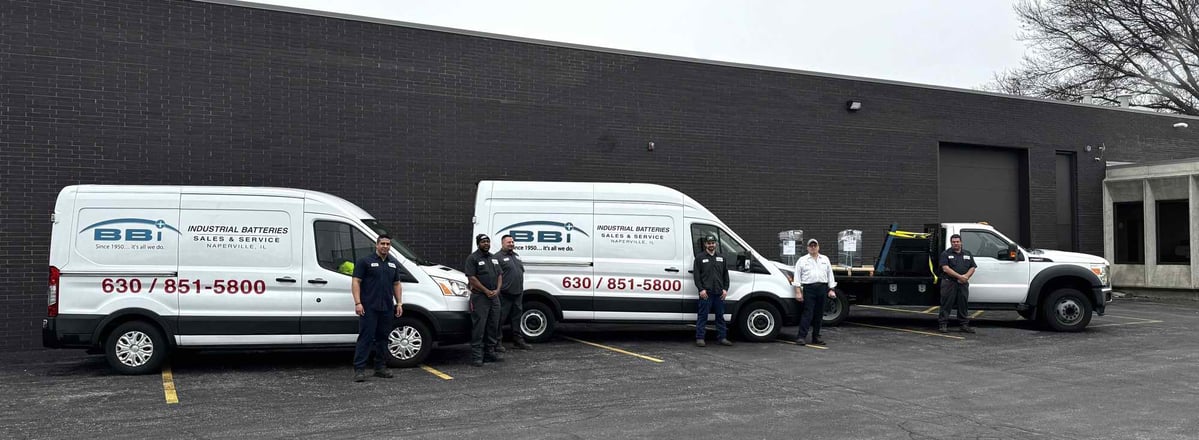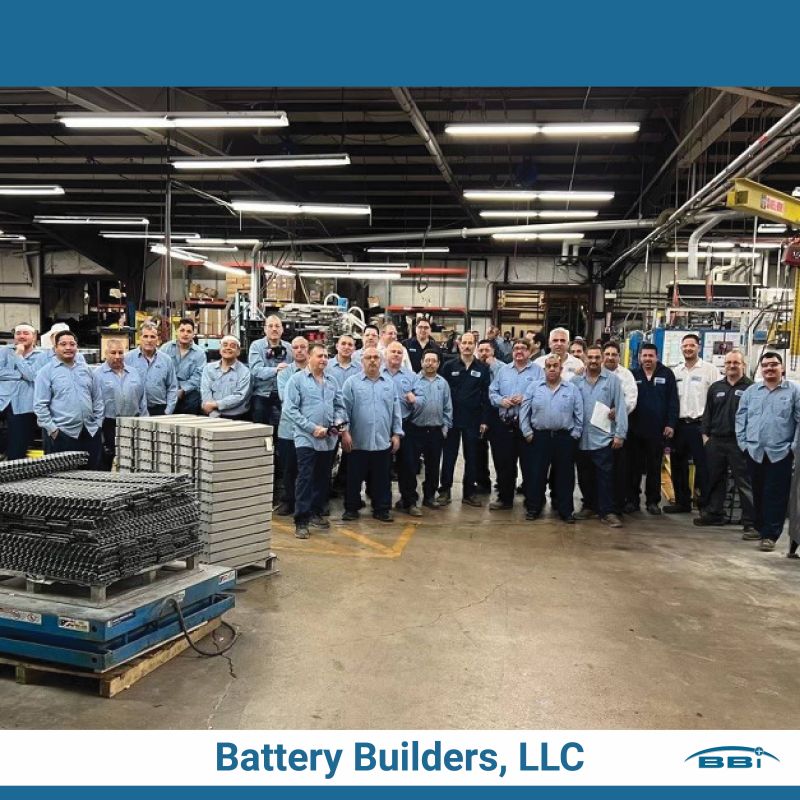
Industrial Batteries vs. Consumer Batteries
When it comes to powering devices, the choice between industrial batteries and consumer batteries can be a significant one. While both types of batteries serve the purpose of storing energy, they cater to vastly different applications and environments. Understanding these differences is crucial for businesses and consumers alike. In this article, we'll delve into the characteristics, applications, and distinctions of Industrial Batteries vs. Consumer Batteries.
Industrial Batteries vs. Consumer Batteries
What Are Industrial Batteries?
Industrial batteries are heavy-duty energy storage solutions designed for demanding applications in a variety of sectors including manufacturing, renewable energy, telecommunications, and transportation. They typically come in larger sizes and are engineered to deliver high power output for extended periods under challenging conditions.
Key Features of Industrial Batteries:
- Durability: Built to withstand harsh environments, industrial batteries are often ruggedized against temperature extremes, moisture, and physical impact.
- Capacity and Power: These batteries generally have higher capacity ratings compared to consumer-grade options. This means they can provide more power over longer durations—crucial for operations like running forklifts or powering backup systems.
- Maintenance Requirements: Many industrial batteries require regular maintenance routines to ensure optimal performance. For instance, lead-acid forklift batteries need periodic water refilling.
Common Applications of Industrial Batteries
24 volt flat plate forklift batteriesIndustrial batteries find their place in several critical applications:
What Are Consumer Batteries?
On the opposite end of the spectrum lies consumer batteries designed primarily for everyday use in various electronic devices such as smartphones, laptops, remote controls, and household appliances.
Key Features of Consumer Batteries:
- Size Variety: Available in multiple sizes (AA, AAA, 9V), these batteries cater to a wide range of consumer electronics.
- Ease of Use: Most consumer batteries are disposable or rechargeable with minimal maintenance required.
- Lower Cost Point: Generally less expensive than industrial counterparts due to mass production aimed at individual consumers.
Common Applications of Consumer Batteries
Consumer batteries are ubiquitous in day-to-day life:
Comparative Analysis Between Industrial Batteries and Consumer Batteries
While both industrial and consumer batteries serve fundamental functions within their respective realms, several factors set them apart:
| Feature | Industrial Batteries | Consumer Batteries | |-------------------------------|-------------------------------|--------------------------------| | Size | Larger | Smaller | | Capacity 18 volt flat plate forklift batteries | High | Moderate | | Maintenance | Regular upkeep needed | Minimal or none | | Lifetime | Longer (typically) | Shorter | | Cost | Higher | Lower | | Applications | Heavy machinery & backup | Everyday electronic devices |
Performance Metrics
When evaluating performance metrics such as lifespan (measured in cycle life), discharge rates, and charging time:
- Industrial batteries often excel with longer cycle lives—sometimes exceeding thousands of cycles—especially those designed for deep cycling applications like forklift use.
- On the other hand, consumer batteries may last shorter but offer quick bursts of power ideal for short-term uses.
Economic Considerations
Another essential aspect is cost-effectiveness:
- While industrial batteries require a more significant upfront investment due to their size and technology involved (think lead-acid or lithium-ion types), their longevity can offset costs over time by minimizing replacements.
- Conversely, consumer batteries are cheaper initially but may require frequent replacements depending on usage patterns—making them pricier over time if you’re not careful.
FAQs About Industrial vs. Consumer Batteries
1. What is the main difference between industrial and consumer batteries?
The primary difference lies in their intended use; industrial batteries are designed for heavy-duty applications requiring high capacity and durability while consumer batteries cater to everyday electronic devices with lower demands.

2. Can I use a consumer battery for an industrial application?
Generally speaking, no; using a consumer battery for industrial tasks can lead to inadequate performance or even safety hazards due to insufficient power output or durability.
3. What types of forklift batteries are available?
Forklift battery options include lead-acid (flooded or sealed) and lithium-ion varieties—with each having its own pros and cons regarding cost, lifespan, maintenance needs, etc.
4. How do I maintain an industrial battery?
Maintenance practices depend on the type but generally include checking electrolyte levels (for lead-acid), ensuring proper charging techniques are followed without overcharging/undercharging situations arising.
5. Are there eco-friendly options available among these two categories?
Yes! There’s forklift batteries been significant progress regarding eco-friendly solutions; many manufacturers now produce lithium-ion models that boast better efficiency while being lighter compared to traditional options across both categories.
6. How long do typical consumer batteries last?
Consumer battery lifespan varies widely based on usage—a standard alkaline AA battery might last anywhere from several hours up to multiple weeks depending on device draw!
Conclusion
Understanding the distinction between Industrial Batteries vs. Consumer Batteries is integral not only for industries relying heavily on powerful machinery but also for everyday users who simply want their devices functioning optimally without hiccups! It’s about knowing your needs—whether 72 volt flat plate forklift batteries it's the rigorous demands of a warehouse floor powered by forklift batteries or powering up your favorite household gadget—you’ll make an informed decision based on this comprehensive overview!
By weighing factors like durability requirements versus affordability considerations against expected usage patterns—the right choice becomes much clearer! So next time you’re faced with selecting either type—remember this comparison guide—it’ll help steer your decision-making towards greater efficiency!
